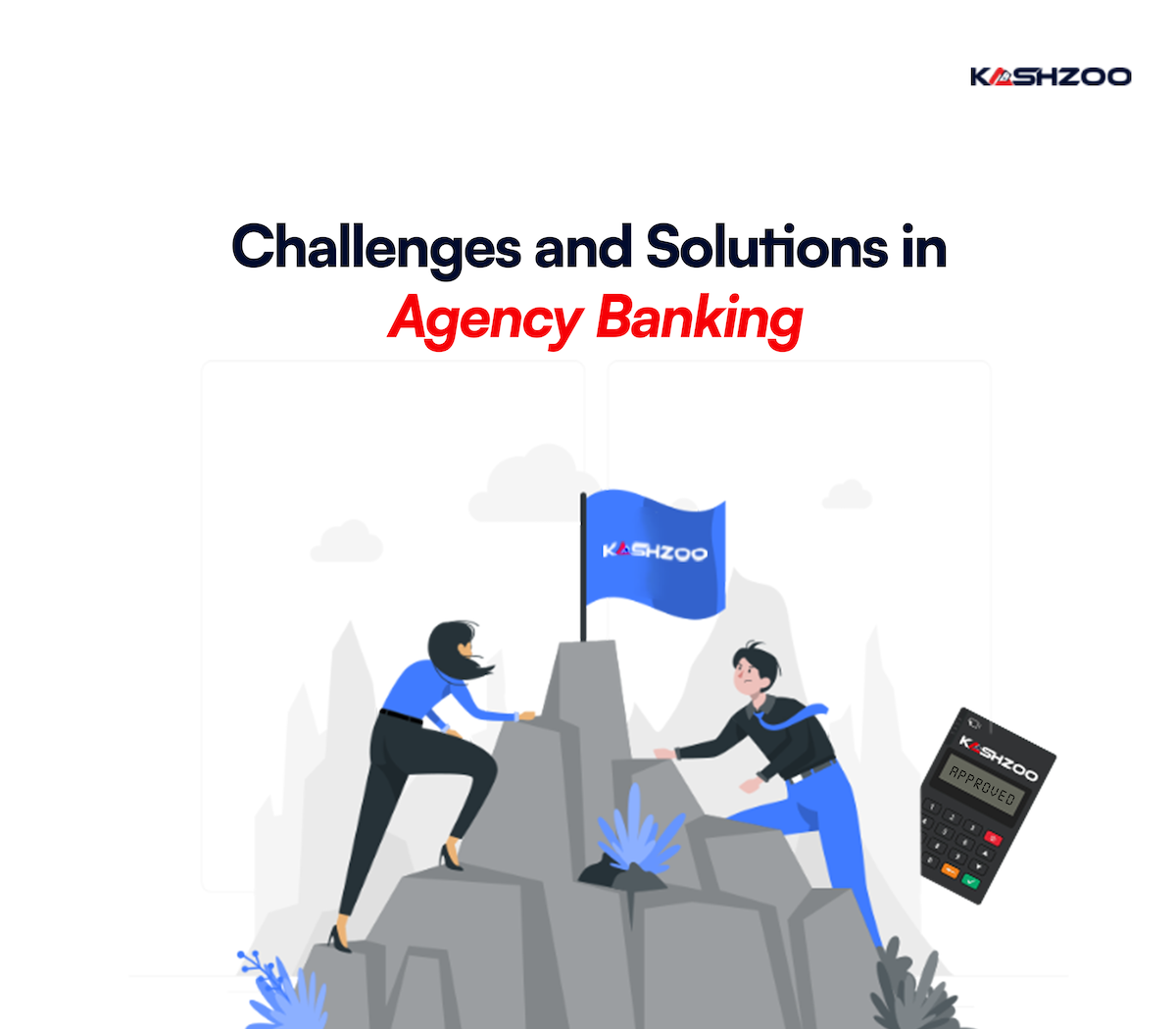Nigeria’s active effort to improve financial services and make them available to the underserved populace continues. As a result, the financial sector has undergone dramatic changes, which have greatly enhanced financial inclusion, among other benefits. Agency banking, introduced by the Central Bank of Nigeria (CBN), played a crucial role in achieving financial inclusivity. While we cannot ignore the benefits that accompany agency banking, its challenges can also not be overlooked, as delving into them will give us insights into practical ways of tackling such challenges. As you read through the blog post, you will discover some of the challenges and practical solutions provided.
What is Agency Banking?
Introduced by the CBN, agency banking involves providing financial services outside of traditional bank branches. To carry out transactions like deposits and withdrawals, agency banking uses technological tools such as Point of Sale (POS) terminals, card readers, and digital technologies. Agency banking uses non-bank retail agents to offer affordable financial services to customers, especially those in the interior parts of the country.
Who are Agents?
Agents are registered individuals who provide banking services to those in need. Agents usually register with agency banking service providers like Kashzoo. Agents pick locations with high foot traffic for their business, and their services are affordable and convenient.
What are some benefits of agency banking?
- Financial inclusion
- Convenience and easy access
- Cost-effective
- Reduction of congestion in traditional bank branches
- Increased customer base and satisfaction
Challenges and Solutions
Just as it is with everything else, agency banking, despite its benefits, has some challenges, some of which will be discussed below and solutions proffered;
1. Security Risks: Some issues facing digital transactions include security threats like fraud and cyberattacks. Agency banking and agents may be hacked due to system compromises or physically robbed by fraudsters who sometimes pose as customers.
- Solution: Agency banking service providers should invest in strong cybersecurity tools and implement advanced fraud detection systems to protect agents and customers from financial crimes. Additionally, agents should be well-trained in best practices in agency banking to reduce exposure to fraud.
2. Breach of Confidentiality: Some service providers divulge customer information to third parties without their knowledge and consent, which may expose their accounts to targeted fraud.
- Solution: Agency banks are supposed to maintain confidentiality at all times. Any service provider caught sharing customer data with third parties should be subject to stringent penalties.
3. Agents’ Training: Many agents need more training to offer financial services to customers. Agents need to learn about product services and customer service issues because they cannot efficiently do their jobs without this knowledge.
- Solution: Training should be mandatory for every aspiring agent. Service providers should also invest in continuous agent training to keep them abreast of industry trends, track agents’ performance, and monitor their activities.
4. Liquidity Management: Many agents, especially those in rural areas, need more cash to meet customers’ withdrawal demands. This causes an inconsistency in cash flow and slows down business.
- Solution: Service providers can offer short-term loans for agents to access when they run out of cash. Agents can also streamline liquidity and track their liquidity level using mobile banking apps to resolve liquidity issues.
5. Customer Trust and Acceptance: Customers, especially those in rural areas, often worry about the safety of their personal information and financial data and are scared to use agency bankers, which slows down the adoption of agency banking.
- Solution: Agents need to be transparent to earn customer trust, and providers should ensure that agents adhere to ethical standards in agency banking. Also, providers should actively promote agency banking, create awareness of its benefits, the safety of transactions, and how to report fraudulent activities should they witness or suspect one.
6. Competition with Traditional Banks: Agency banking may find competing with traditional banks in urban areas difficult since they are perceived as more established and safe. Hence, customers may prefer to go to the banks.
- Solution: Providers should collaborate with traditional banks and fintech companies because collaborations enhance service packages that combine the convenience of agency banking with the existing trust of traditional banks.
Our Take
The future of financial inclusion depends on how well agency banking challenges are tackled. Since agency banking has much potential to bridge the financial gap for underserved communities, its growth is not without challenges. Security risks, infrastructure limitations, and liquidity management are obstacles that agents and providers must navigate. However, these challenges can be addressed with the right solutions, from enhanced training and better liquidity tools to partnerships and regulatory reforms.




What do you think?
It is nice to know your opinion. Leave a comment.